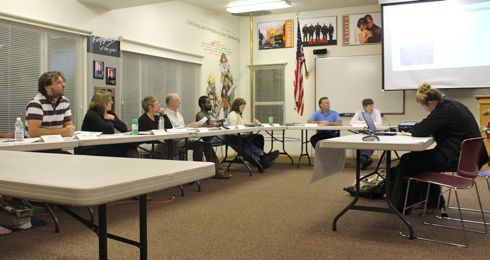
By Tracy Record
White Center Now editor
Tonight’s North Highline Unincorporated Area Council was packed with enough information for a year’s worth of meetings, from updates on some of White Center’s recent major news – like the plan to bring back the WC storefront deputy – to briefings on major transportation issues from the Alaskan Way Viaduct construction work to a new plan for handling road maintenance if a “tiered system” emerges from the next county budget plan. Here are the key points, noted as they happened, though not necessarily in this exact order:
KING COUNTY SHERIFF’S OFFICE REPORT: Capt. Joseph Hodgson delivered this month’s update. He apologized for not bringing crime statistics, saying the analyst has been temporarily reassigned. “I don’t know if there’s anybody in the room that’s not aware of the really big news, but thanks to some great work from the community … we’re getting our storefront deputy back; it’s going to be tremendous. I’m really enthusiastic about the possibilities.” He said it’s generating a lot of interest from deputies and they’re certain they’ll find someone “immensely qualified” for the position. He says they are still looking for two other suspects in the Sweetheart Failautusi murder.
Asked about the Club Reventon/ex-Club Evo situation, Capt. Hodgson says he’s been in touch with Liquor Control Board officials, and mentioned the “secondary club” application (East Marginal Way, as previously reported here). “It surprises me a little bit he would open two clubs under the same name so close together,” Capt. Hodgson observed. “I don’t know what that means to the effort that was occurring here … but it seems as though it is a separate application for a separate location.” Noting its industrial location, he observed it wouldn’t likely have the same kind of impact that the prospective club would have in White Center. He says KCSO has shared some information with the city of Seattle, in whose boundaries the other potential Club Reventon lies.
Major Jim Graddon, also in the room, shared more information about speaking with the city, saying “we’ve offered our assistance, the same information we prepared for DDES in King County. … We’ve already made the offer to share whatever information (Seattle) may want from us.” NHUAC president Barbara Dobkin asked for more elaboration on one line in the letter denying Reventon’s business-license application, mentioning a 64 percent reduction in crime. Capt. Hodgson said he looked at two areas, including one immediately around the club. “In looking at that data, whether you compare periods immediately before and after the club’s closure, or different years … there was approximately a 64 percent reduction in police activity when the club was closed.” That didn’t only involve crime, he clarified, but other requests for law-enforcement assistance. “I was really surprised .. but the numbers kind of speak for themselves.”
NHUAC councilmember Patrick Mosley asked about Deputy Jeff Hancock possibly returning to the storefront deputy position; Capt. Hodgson said he hadn’t talked with him, but he did know that Deputy Hancock had been pleased in working “closer to home”. Major Graddon said he gets to make the final call, as precinct commander, and “certainly understand(s) the desires of the community to have someone who knows what’s going on.” Mosley said he’s concerned about somebody “starting” (from scratch) regarding a rapport from the area; Maj. Graddon said lots of officers already do have that, from working in this area. Capt. Hodgson added, “I see a lot of value in a new perspective. … We’ll see how it plays out.” NHUAC councilmember Rebecca Lopes wondered about the deputy who lives in White Center and has been working in Greenbridge, whether he had applied, and Capt. Hodgson reiterated that they haven’t even opened the application process yet; Maj. Graddon added that they expect to keep that deputy in that position for a while, as part of the contractual responsibilities with the King County Housing Authority. Capt. Hodgson and Maj. Graddon both said they hope to get the new WC storefront deputy in place by October 1st and will open the application process within days. The major said the community-service officer (Peter Truong, currently) should be staying in his role in downtown WC as well. Dobkin asked about specific hours and duties for the deputy; Capt. Hodgson said that’s “still up for discussion” right now, depending on “what’s going to work best for the community.” The Boulevard Park-area deputy works four 10’s, Tuesday-Friday, he noted, and “we would look at that as a possibility,” as well as whether a five-day, 8-hour-a-day schedule would work. (Later in the meeting, NHUAC members talked about the deputy restoration, and their appreciation for the business community and other residents for signing the petition that the council had been circulating since July to get the deputy back. Those petitions will still be submitted, for the records – “they were hard-earned signatures,” NHUAC president Dobkin noted.)
Capt. Hodgson mentioned the call at 16th/Roxbury last night first went out as a shooting, “but it was not .. it was essentially a bar fight.” They located “possible suspects” but the individual “did not want to participate in charges,” and everybody was “cut loose” .. the prosecutor could pursue charges, he said, adding, in response to a question from community member Gill Loring, that it did not appear to be gang-related. A community member then asked if there’s an overall increase in gang activity; Capt. Hodgson said, “It does seem as though there may be,” but has no numbers to quantify that. “It’s certainly rising to a higher level of public awareness.”
NORTH HIGHLINE FIRE DISTRICT CLOSE TO A CONTRACT WITH BURIEN/NORMANDY PARK (FIRE DISTRICT 2): Chief Steve Marstrom briefed NHUAC on the state of the district, after apologizing for not having been as visible as previous chiefs. “My charge has been to stabilize the organization and help set a course for the future of the organization, and that’s where my focus has been.” He said he felt he had inherited last year “a ship full of holes,” and people trying desperately to plug those holes while there was “nobody holding onto the rudder and steering the ship.” He said the problems had included the previous chief’s departure, the annexation by Burien, a failed attempt to get an administrative contract with another district – “the organization needed desperately for somebody to grab hold of the helm and right the ship.” He felt that has now happened, to some degree. And that’s led to a big decision ahead on one big issue: The Burien-Normandy Park contract is up for renewal at the end of this year, but they had told NHFD last year they didn’t intend to renew it as it stood, so an evaluation of options regarding what’s next for the fire district has been under way. One: “Become a completely independent fire district,” he said, operating out of one fire station, “becoming increasingly dependent on volunteers” and with service levels resembling those of 25 years ago. That was a “not very positive option,” he said. Another option: Contract with the City of Seattle. Or, change the terms for the contract with District 2. Or – get annexed. NHFD can’t control the latter, of course, he said, so they had to look at “what we could have some control over – and that was, contracting was the next best option, we felt.”
They talked with Seattle, considered briefly “until they told us how much they wanted us to pay them, and it was so far out of reach,” it was infeasible. Regarding renegotiating with District 2, he said that’s pretty much the only option, and they are “coming close to … negotiating an improved agreement from the current contract. This new approach combines the administration of both districts into one.” The District 2 fire chief would become the NH fire chief. It would be a four-station department, with a chief responsible to the citizens of both districts, and NH sharing in the cost of administration and support. Two NH battalion chiefs “would transfer employment to district 2,” as would one member of the clerical staff. He says that agreement “is expected to save the NHFD more than $200,000 a year over what we expect to spend in 2011. That’s pretty significant in my view.” Overall, he believes, “everybody comes out a winner.” He says “the timing is good” because the county assessor had recently said the assessed value in the district is dropping almost 10 percent, which would mean a drop in revenue for the district as it stands now – about $250,000 worth, in fact. He says the negotiations with District 2 have been under way for several months, and both districts’ boards will take their first look at the draft contract next Tuesday. It then would be an action item on the September 20th agenda, and the contract could take effect October 1st. No formal public hearing is scheduled but “interested citizens are welcome to attend either or both meeting.” The meetings will both be at North Highline FD HQ, 10 am for next Tuesday’s meeting, 6 pm for the Sept. 20th meeting.
NHUAC councilmember Ron Johnson asked Chief Marstrom, “So (if this all takes effect) you would get to retire again?” He said, after a brief transition period, yes – possibly as short as a week. North Highline FD would still have its own Board of Commissioners, and would be an autonomous district, Marstrom stressed.
ALASKAN WAY VIADUCT UPDATE: Matt Preedy, a West Seattle resident who is running the Alaskan Way Viaduct South End Replacement Project, briefed NHUAC and the standing-room-only audience on where things stand. In particular, Preedy wanted to make sure everybody knows about the upcoming 9-day Viaduct closure (October 21-31) as well as the Central Waterfront tunnel project. He went over the details of the south-end viaduct replacement, and also pointed out where the tunnel work will start at the south end. (You can check this all out through a series of graphics on the Alaskan Way Viaduct website.) If you haven’t already heard all about the 9-day closure – after which, the Viaduct’s speed limit will be decreased, 40 mph overall except for a 25 mph “advisory speed” through a detour replacing the section near the stadiums – we rolled video on the briefing and will add it once it’s uploaded. He also mentioned the answer to a frequently asked question – since the tunnel doesn’t have a mid-downtown exit, how will people from West Seattle get downtown? – it’s the King Street-vicinity exit, before the tunnel. Construction for the tunnel has officially started as of about nine days ago – no dirt turned yet, “about a month out,” said Preedy, but “we’re not that far away from a groundbreaking ceremony.”
SPOKANE STREET VIADUCT UPDATE: Paul Elliott from SDOT followed Preedy by discussing this project, involving the section of the West Seattle Bridge known as the Spokane Street Viaduct – between Highway 99 and I-5. He mentioned that the new lanes will be 11 feet wide, with a 7-foot shoulder, compared to the current 10-foot-wide, no shoulder lanes. Elliott also mentioned the relatively new 4th Avenue South ramp that has plenty of capacity for folks to use. (We can vouch for that, having used it almost daily for the past month, heading to the County Courthouse for a trial on behalf of our partner site West Seattle Blog.) Elliott reiterated that the 1st Avenue South on- and off-ramp on the westbound half of the Spokane Street Viaduct should be done by the end of the year, and the entire project by sometime next spring. But even once construction is done, he said, the old structure needs some work. The timing/sequencing of those hasn’t yet been worked out, he said, but for the duration of any closures, at least one eastbound offramp (either 1st or 4th) will remain open. In response to a question later, Preedy said that the new tunnel will not have any cargo restrictions beyond the ones that already exist for the Battery Street Tunnel. NHUAC councilmember Rebecca Lopes asked if there’s a tolling amount yet for the tunnel; Preedy mentioned that a Tolling Advisory Committee is being assembled, and will start work later this year to “study the correct method/rates for tolling” – enough to raise the funding that the project is relying on, but not so much as to discourage tunnel usage. Whether it will be a temporary or permanent toll, Preedy said, has not yet been determined.
AIRPORT WAY BRIDGE CLOSURE: Elliott was asked about this (officially the Argo Bridge Closure); it looks like it’ll start within a few months, and the bridge will be closed for at least a year. Simultaneous with the Viaduct closure timing? it was asked. Preedy said that regional transportation authorities are looking that to see if that should be delayed, if it doesn’t look like there is enough “capacity” to replace what’s being lost on 99 during the 9-day closure, though he stressed that there are reasons it’s not a good idea to delay the Airport Way work further.
KING COUNTY DOT: The next transportation person to go on the agenda was DeAnna Martin, a planner from Metro. She invited questions about Metro. NHUAC president Dobkin asked about bus service and the 99 closure. She stressed the importance of bus riders signing up for e-mail alerts. She noted that while some buses are getting additional service (as we reported on West Seattle Blog earlier this week), the West Seattle Water Taxi will remain at its current service levels (King County Councilmember Joe McDermott’s staff, though, tells us they will be working on accessibility issues – perhaps surrounding parking for the water taxi, which is challenging at its Seacrest Pier terminal in West Seattle). She also spoke about the “right-sizing” of bus service – possibly replacing fullsize buses in some areas with DART service, for example. She didn’t think that was going to have much effect on this area of the county, though. She noted that Metro will be out in the White Center area (we know this is also the case for West Seattle) starting in October to talk about future potential route changes as the West Seattle RapidRide Line kicks in one year from now. There was also discussion of the Congestion Relief Charge – $20 added to car tabs – approved by the County Council recently. CM McDermott rose from the audience to speak to an attendee’s question, saying they’ve always been clear that while the service hours won’t be cut, it doesn’t mean status quo for service – there may be changes, but not cuts in hours. A side discussion erupted over whether the county might consider reviewing whether to change the zone line – right now, it’s the Seattle city limits, and everyone south of them pays for two zones to travel to and from downtown.
KING COUNTY ROADS: Strategic Planner Jay Osborne brought a presentation with which he says they’re making the rounds. He says unincorporated King County has a million daily trips on its roads – with only half of that by residents who are paying taxes for them. Osborne noted that they are affected by the mentioned-earlier drops in property assessments – his own home, he noted, is worth $60,000 less than its assessed value a year earlier, on the notice that he just received. Overall, he says, they’re now working with a “Strategic Plan for Road Services” (you can see it here), which sets out the division’s priorities. He says the cameras/signal regulation going in on 16th, by the way, are funded by a grant. He says White Center and Skyway are getting sidewalk projects because there is funding based on “social equity” – asked by NHUAC councilmember Liz Giba exactly where they are, Osborne admitted he didn’t have that information handy. The county has 1,552 miles of roads, and has had to project potential bottoming-out of revenues, which means they would have “tiered service levels.”
Theresa Canfield stepped in at that point to explain which North Highline road (out of about 54 miles of them) fits on which tier. Osborne then said that some roads may even have to revert, if they are determined to be Tier 5, to gravel. But principal roadways like 16th SW and the south side of SW Roxbury are Tier 1 and will always be kept in “good condition,” he said. Tier 2 roadways will get attention too (SW 107th is in this category). Tier 3 roadways might have to be allowed to deteriorate, he said. Other examples sown: 26th SW is Tier 3; 24th SW is Tier 4; 28th SW is Tier 5. There will be less ability for snow/ice removal in the future, he noted, as revenues decline. Interesting stat: From 1996 to 2006, there was 1 event that qualified for federal assistance regarding King County roads, said Osborne; since 2006, he said, there have been 12. (Wind, snow, ice, etc.) Osborne said they’re out talking about this now because it’ll be part of the budget process that is coming up this fall – and the tiered system theoretically would kick in next January. Regarding the current work on 16th, Osborne was asked about the sidewalk cleanup following the current work, and he said that since the paving has just been finished, the cleanup should follow. For the next 20 years, he said, there are about $1.3 billion dollars worth of needs – and funding projections falling about $1 billion short of that.
NHUAC’S FUTURE: President Dobkin wants to hear from the community how they would like to see the council continue – given that the county’s way of dealing with UAC’s, and funding, will change as of the end of the year. “We have a lot of things to think about,” she said, adding that, “since we’re a community council, we want to hear from the community.” Dobkin says she believes the council should continue, even without formal county support/financing. She asked other members to talk to the people they encounter, to find out what they think. (If you would like to chime in via e-mail, contact information is on the NHUAC website.)
GRAFFITI PROGRAM REMINDER: NHUAC councilmember Christine Waldman reminded all present about the NHUAC Graffiti Management Program, with resources for fighting it – there’s more information on the NHUAC website (scroll to the lower left), if you know of graffiti that needs to be taken care of.
PUBLIC ANNOUNCEMENTS: FALL RECYCLING EVENT on September 10th at Evergreen High School (info link is on the NHUAC website) … North Highline Fire District Commissioners meet at 10 am Tuesday, September 6th (and as noted above, they’ll have a big issue on their agenda).
PUBLIC COMMENT: None tonight.
The North Highline Unincorporated Area Council meets the first Thursday of each month, 7 pm, North Highline FD headquarters.


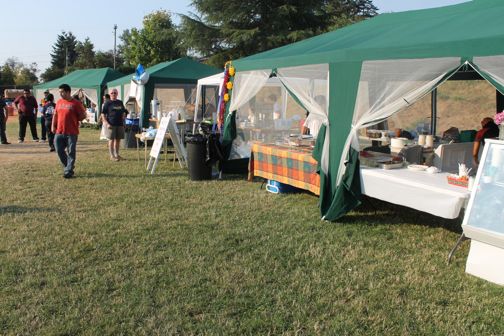
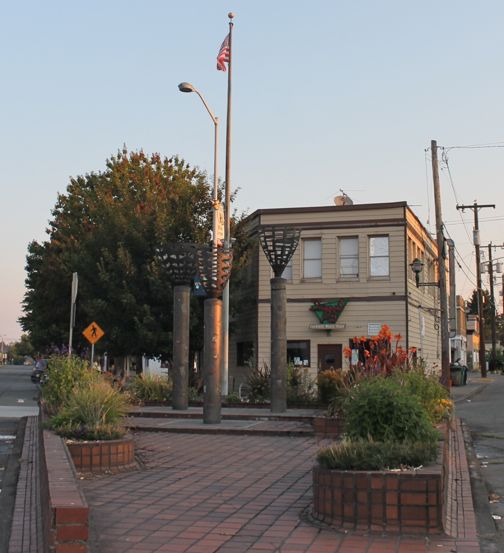


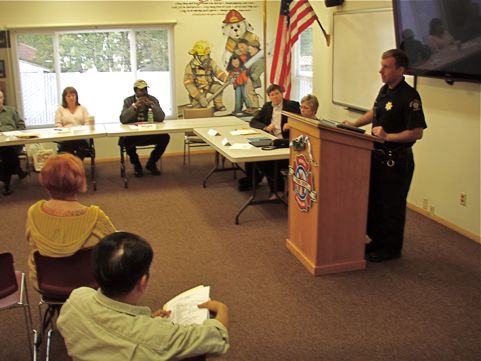


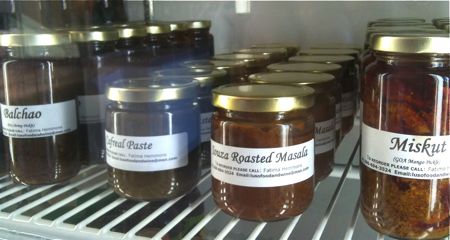

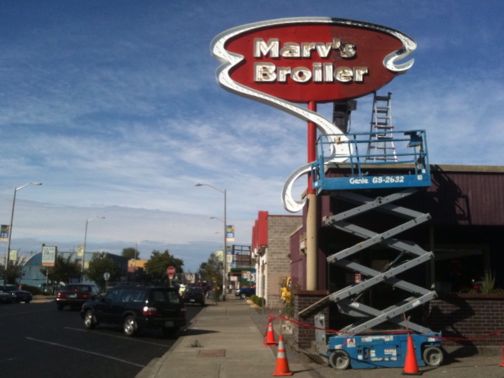


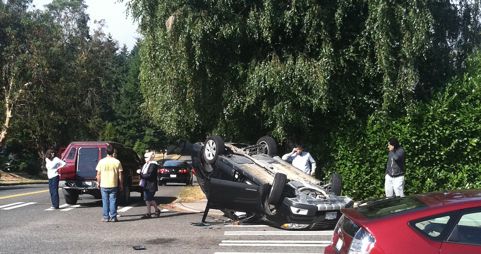


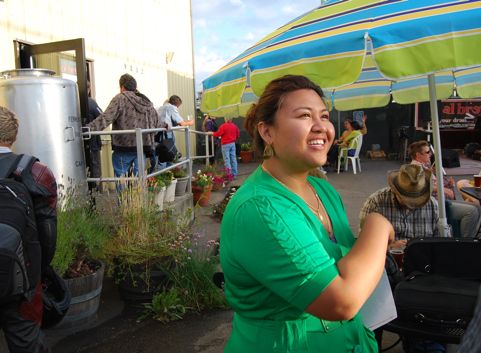

 did a lot for me. There are almost 17,000 signatures on it at this point and that is what got me the media attention, I am convinced…but beyond that, people cannot stop working toward their goal of modification. Don’t take no for an answer. Keep going. Just keep going.”</p>
<div style=)